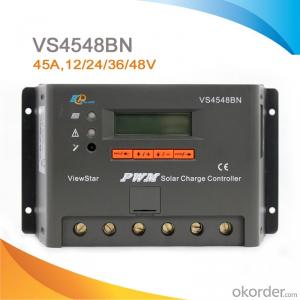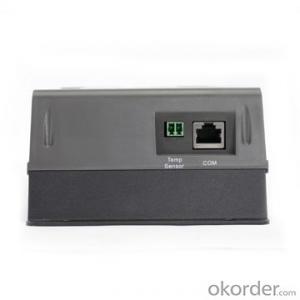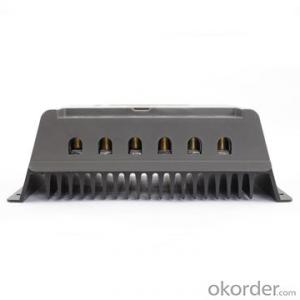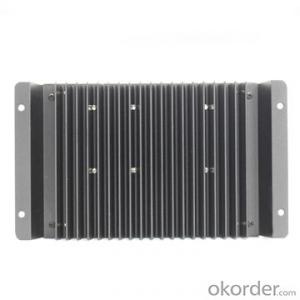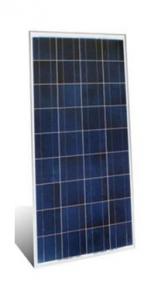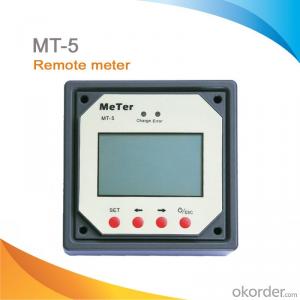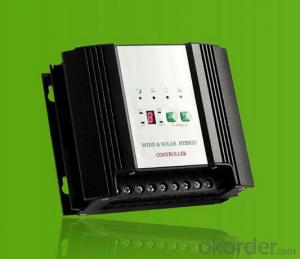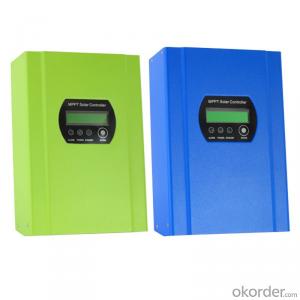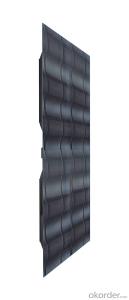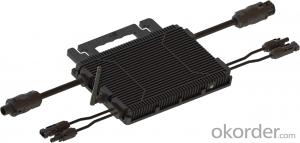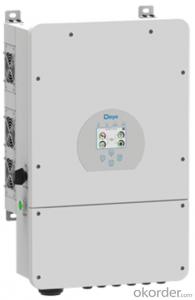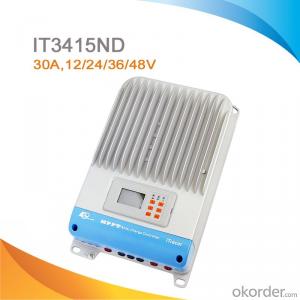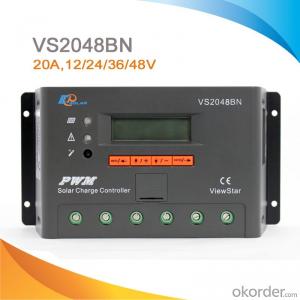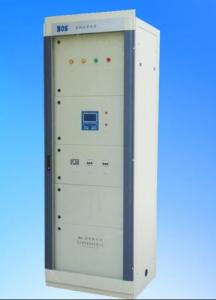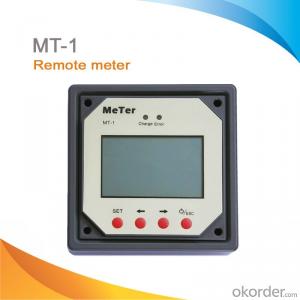LCD Display PWM Solar Panel Charge Controller /Regulator 45A 12/24/36/48V,VS4548BN
OKorder Service Pledge
OKorder Financial Service
You Might Also Like
ViewStar series solar controller is our new generation controller for off-grid solar system, such as street light, solar home system or small power station etc.
Features:
·Excellent EMC design
·32 bit MCU with high speed
·High efficient Series PWM charging
·Four battery type options: Sealed, Gel, Flooded, and USER
·Intelligent lighting and timer control for solar lighting system
·12 bit A/D high-precision sampling to ensure accuracy
·Use MOSFET as electronic switch
·Full control parameters setting and modification, diversified load control mode
·Humanized design of browser interface, undertake every operating conveniently
·Temperature compensation
·Adopt graphics dot-matrix LCD screen and HMI (human-machine interface) with 4 buttons,integrated menu displaying and operation
·Energy statistics function
·RS485 ports with MODBUS communication protocol
·Optional PC monitoring software and remote meter for real-time monitoring and battery management parameter setting
·Field upgradable firmware
Electronic Protections:
·PV short circuit protection
·PV reverse polarity protection
·Battery overcharge protection
·Battery over discharge protection
·Battery reverse polarity protection
·Load overload protection
·Load short circuit protection
·Overheating protection
Specification:
Nominal system voltage | 12/24/36/48V auto work | |||
Rated battery current | 20A | 30A | 45A | 60A |
Rated load current | 20A | 30A | 45A | 60A |
Max. battery voltage | 64V | |||
Equalize charging voltage | Sealed: 14.6V, Flooded: 14.8V, User-defined: 9~17V | |||
Boost charging voltage | Gel: 14.2V, Sealed: 14.6V, Flooded: 14.8V, User-defined: 9~17V | |||
Float charging voltage | Gel /Sealed /Flooded: 13.8V, User-defined: 9~17V | |||
Low voltage reconnect voltage | Gel /Sealed /Flooded: 12.6V, User-defined: 9~17V | |||
Low voltage disconnect voltage | Gel /Sealed /Flooded: 11.1V, User-defined: 9~17V | |||
Self-consumption | ≤15mA(12V); ≤10mA(24V); ≤9mA(36V); ≤8mA(48V) | |||
Grounding | Common negative | |||
Temp. compensation | -3mV/°C/2V | |||
Relative humidity | 10%~90% Non-condensation | |||
Communication | RS485 / RJ45 interface | |||
LCD temperature | -20°C ~ +70°C | |||
Working temperature | -25°C ~ +55°C | |||
Humidity | ≤95% N.C. | |||
Enclosure | IP30 | |||
Overall dimension | 200x103x58mm | 201x109x59mm | 205x119x67mm | 205x174x64mm |
Terminals | 16mm2 | 35mm2 | 35mm2 | 35mm2 |
Net weight | 0.7kg | 0.9kg | 1.2kg | 1.5kg |
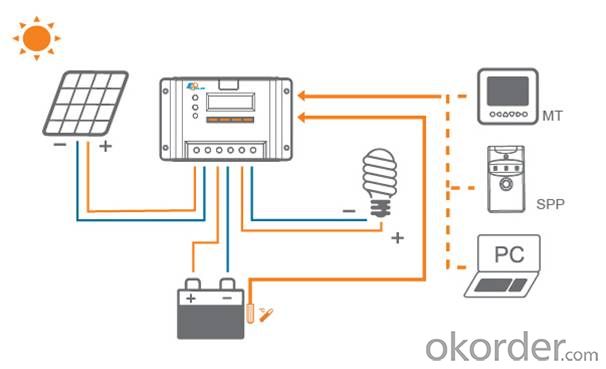
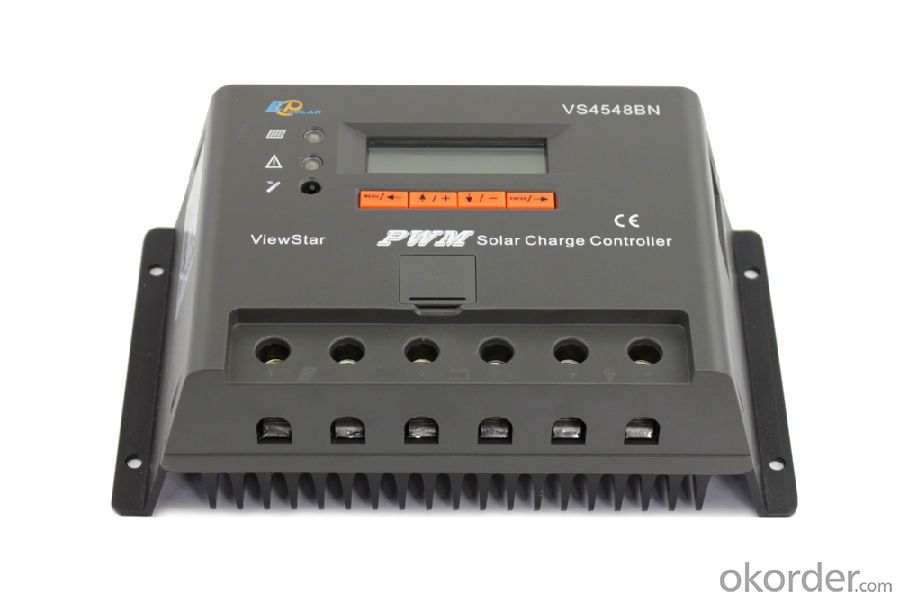
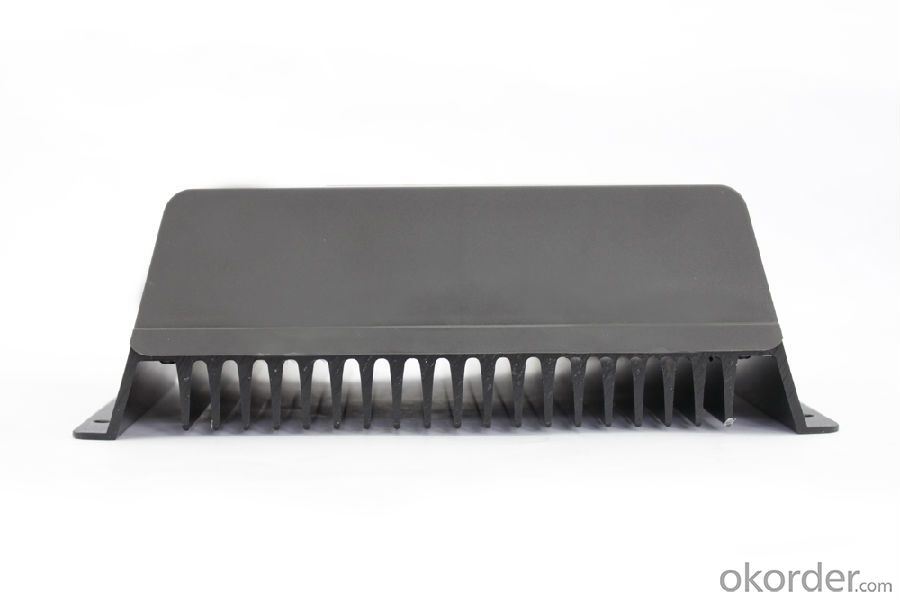
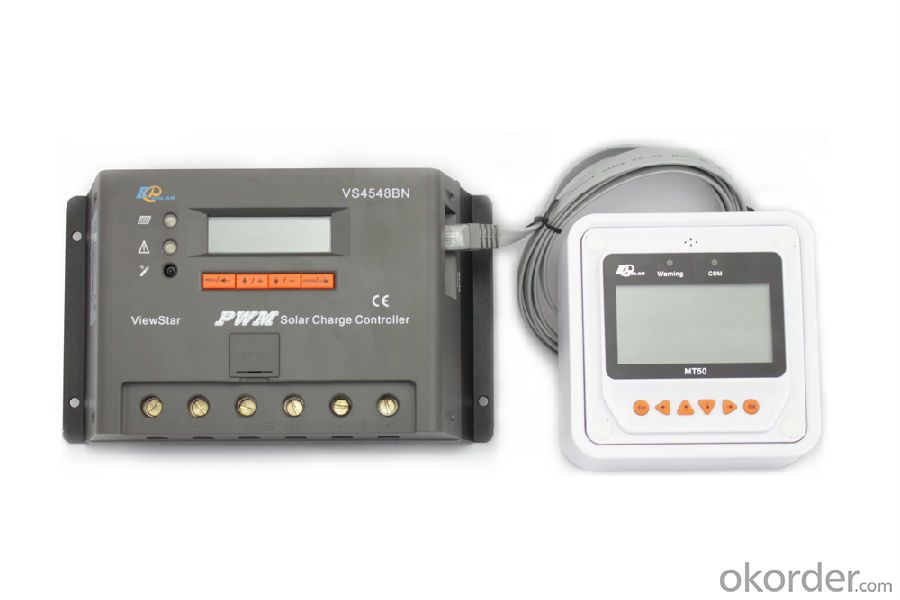
FAQ:
Q1. What is the voltage?
A1. Our 45/60A solar charge controller is 12/24/36/48V auto work.
Q2. What is the difference between MPPT&PWM?
A2. MPPT has higher efficiency, it can track the max power point and won't waste energy.
Q3. What is the efficiency of the MPPT controller?
A3. MPPT>99%, peak conversion efficiency>98%.
Q4. What is the waranty of product?
A4. 12 months.
- Q:Can a solar controller handle both 12V and 24V systems?
- No, a solar controller is designed to handle either a 12V or a 24V system, but not both simultaneously.
- Q:Can a solar controller be used with solar panels that are connected to a micro-inverter?
- Yes, a solar controller can be used with solar panels that are connected to a micro-inverter. A solar controller is typically used to regulate or control the charging of batteries in a solar power system. It is responsible for managing the flow of electricity from the solar panels to the batteries, preventing overcharging and ensuring optimal charging efficiency. In a system where solar panels are connected to a micro-inverter, the micro-inverter is responsible for converting the DC power generated by the solar panels into AC power that can be used by household appliances or fed back into the grid. The micro-inverter regulates the output voltage and frequency of the AC power. The solar controller, in this case, can still be used to regulate the charging of batteries in the system. It can monitor the current and voltage of the solar panels and adjust the charging parameters accordingly. The micro-inverter's role is limited to the conversion of power, while the solar controller can still optimize the charging process to ensure the batteries are properly charged and protected. Overall, the combination of a solar controller and a micro-inverter allows for efficient power conversion and optimal battery charging in a solar power system.
- Q:What is the typical efficiency rating of a solar controller?
- The typical efficiency rating of a solar controller is 95% to 98%.
- Q:Can a solar controller be used with solar panels that are connected to a solar heating system?
- Solar panels connected to a solar heating system can indeed be used with a solar controller. The purpose of this controller is to regulate and optimize the energy flow between the panels and the connected system. When it comes to a solar heating system, the controller will constantly monitor the system's temperature and adjust the energy flow accordingly in order to maintain the desired temperature. By doing so, it enhances the efficiency and effectiveness of the solar heating system. Thus, a solar controller is a crucial component that can be utilized alongside solar panels in a solar heating system.
- Q:Can a solar controller be used with a solar-powered heating system?
- Yes, a solar controller can be used with a solar-powered heating system. A solar controller, also known as a charge controller, is responsible for regulating and controlling the flow of electricity from the solar panels to the heating system. It ensures that the solar panels are operating at their maximum efficiency and prevents overcharging of the batteries or system. By using a solar controller, the solar-powered heating system can effectively harness the energy from the sun and distribute it to the heating components, ensuring optimal performance and maximizing energy savings.
- Q:Can a solar controller be used in a solar-powered electric bus charging system?
- Yes, a solar controller can be used in a solar-powered electric bus charging system. A solar controller is responsible for regulating and optimizing the flow of energy from solar panels to the batteries. In a solar-powered electric bus charging system, the solar controller would ensure that the energy generated by the solar panels is efficiently stored and utilized for charging the bus's batteries.
- Q:What is the self-consumption of a solar controller?
- The self-consumption of a solar controller refers to the amount of energy that the controller itself consumes to operate. This energy consumption is separate from the energy generated by the solar panels it controls.
- Q:Can a solar controller be used in a solar-powered outdoor signage system?
- Yes, a solar controller can definitely be used in a solar-powered outdoor signage system. A solar controller helps regulate and optimize the charging and discharging of the batteries in the system, ensuring efficient and reliable operation of the signage. It helps protect the batteries from overcharging and over-discharging, which can significantly extend their lifespan. Additionally, a solar controller can help monitor and display the charging status and performance of the solar panels, allowing for better management and maintenance of the outdoor signage system.
- Q:Can a solar controller be used with solar water heaters?
- Yes, a solar controller can be used with solar water heaters. The solar controller helps in regulating and optimizing the operation of the solar water heater system by monitoring and controlling the flow of heat transfer fluid and maintaining the desired temperature in the storage tank. It also ensures the efficient usage of solar energy and protects the system from overheating or freezing.
- Q:What is the role of a remote monitoring system in a solar controller?
- The role of a remote monitoring system in a solar controller is to collect and analyze data from the controller, panels, and other components of the solar system. It allows for real-time monitoring of the system's performance and provides important information on energy production, battery status, and any potential issues or malfunctions. This enables remote troubleshooting, efficient maintenance, and optimization of the solar system's efficiency and overall performance.
1. Manufacturer Overview |
|
|---|---|
| Location | |
| Year Established | |
| Annual Output Value | |
| Main Markets | |
| Company Certifications | |
2. Manufacturer Certificates |
|
|---|---|
| a) Certification Name | |
| Range | |
| Reference | |
| Validity Period | |
3. Manufacturer Capability |
|
|---|---|
| a)Trade Capacity | |
| Nearest Port | |
| Export Percentage | |
| No.of Employees in Trade Department | |
| Language Spoken: | |
| b)Factory Information | |
| Factory Size: | |
| No. of Production Lines | |
| Contract Manufacturing | |
| Product Price Range | |
Send your message to us
LCD Display PWM Solar Panel Charge Controller /Regulator 45A 12/24/36/48V,VS4548BN
OKorder Service Pledge
OKorder Financial Service
Similar products
New products
Hot products
Hot Searches
Related keywords
